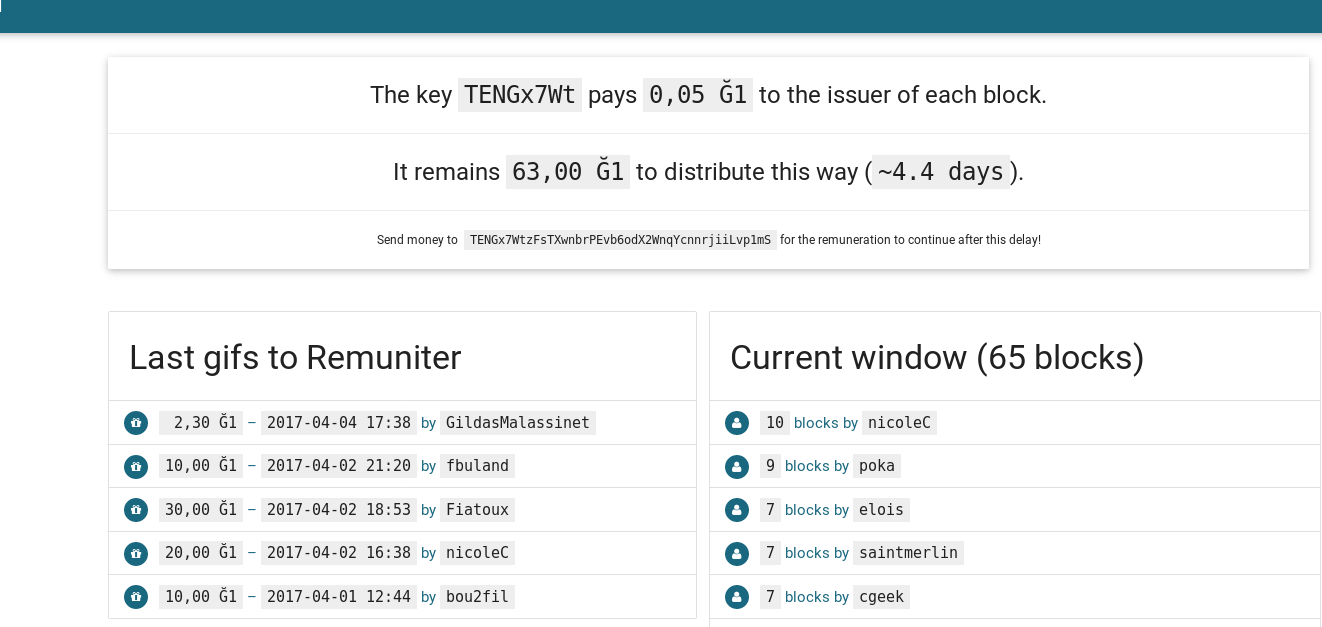Pay back of nodes owners
In Duniter, unlike the usual cryptocurrencies, the network does not include a transaction tax. The reason is that we think we should avoid mixing topics. In order to remain simple, the technical base (the blockchain, The P2P network) should not incorporate the means to compensate those who host the nodes.
Why should I host a node ?
For the same reason that you share torrent files without waiting for pay back! Simply to support the network. There are several factors to consider:
The block calculation in Duniter costs almost nothing. What secures the blockchain is the fact that each calculator is explicitly associated with a human being. Thus, there is no risk of Sybil attacks, and there is no power race needed!
As long as your PC is in the average of the existing powers (from Raspberry Pi to the 4-core PC), your node can participate in the computation of the blocks.
You should not wait for other members to calculate for you. Running your node, you ensure that the network complies with the common rules in the blockchain. This node will ensure for you that the Universals Dividends are properly generated, and that transactions are transmitted.
Still, there is really no remuneration envisaged to share its node with the network?
Today, the block computation can be remunerated by the Remuniter service . The operation is simple: users can transfer money on the key of Remuniter, and the service will be responsible for distributing the units received to the calculators.

Eventually, the Duniter economy will develop by itself and invent its solutions over the block computation. For example, we could imagine a company that would accept to compute blocks containing user transactions only if they sent money to that company. It would then compute blocks containing the user's transaction as well as the payment required for the transaction.
It should be noted that this economic element would then have performed well over the technical protocol. This one is neutral, and by default does not induce any particular behavior with respect to the activity of blocks computation.